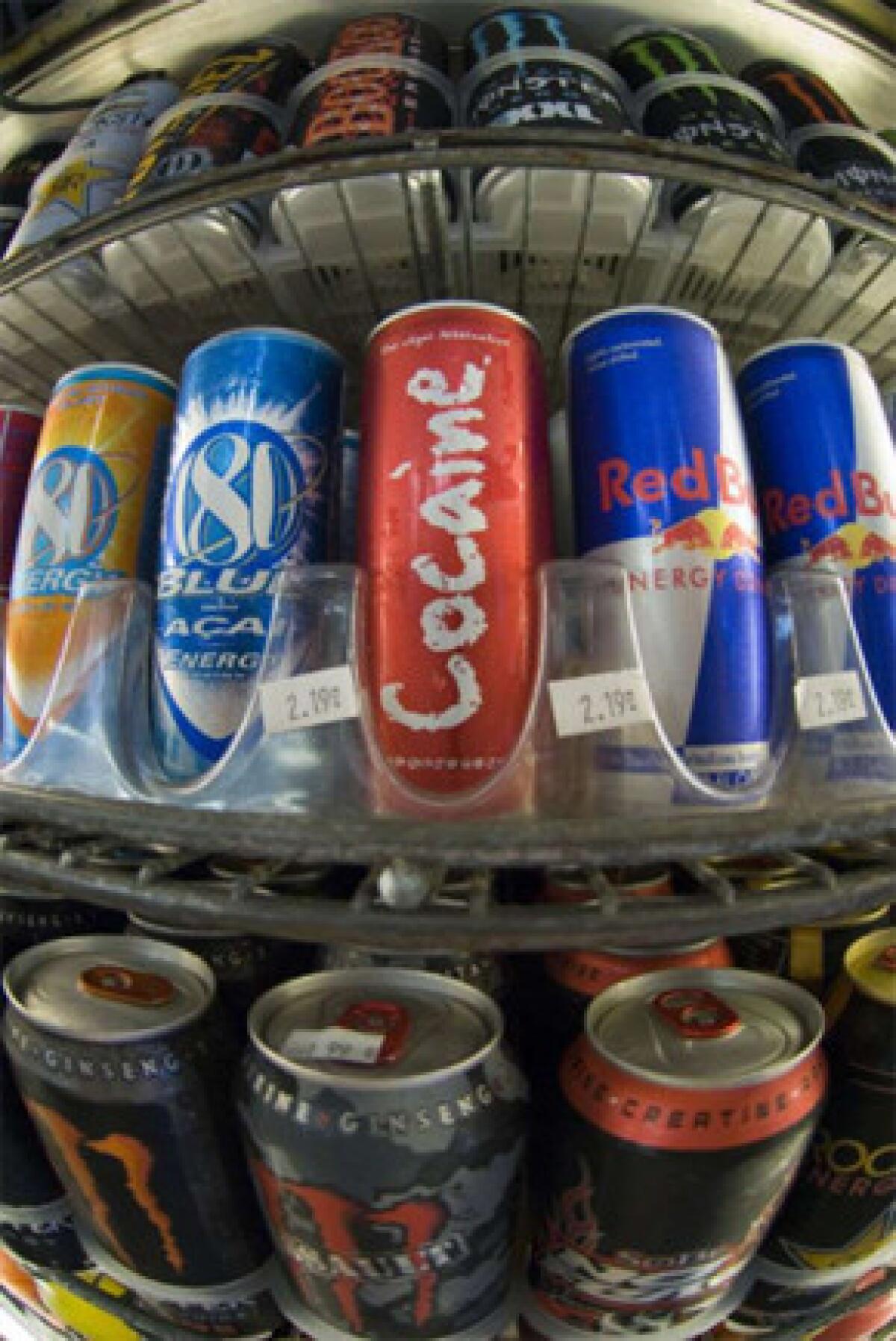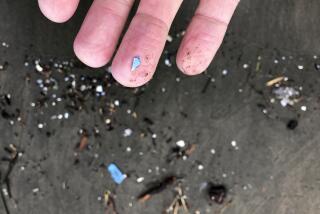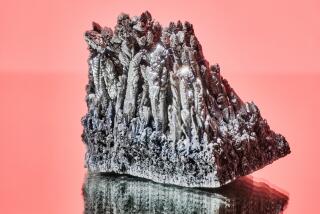Energy drinks speed heart contractions, MRIs show

This is your heart on an energy drink, and it’s contracting significantly faster than it was before you opened that can full of liquid stimulant.
So says a team of cardiac radiologists who were concerned about adverse side effects from energy drinks, especially on heart function. Energy drinks like Red Bull, Monster, 5-Hour Energy and Rockstar are involved in tens of thousands of emergency room visits each year. In the U.S. alone, nearly 21,000 people went to E.R.s after consuming energy drinks in 2011, according to a 2013 report from the Substance Abuse and Mental Health Services Administration.
A typical energy drink can have up to three times as much caffeine as coffee or soda, according to Dr. Jonas Dörner, a resident at the University of Bonn in Germany and member of the research team. High caffeine consumption can cause rapid heart rate, palpitations, a spike in blood pressure and even seizures or death, he said in a statement. Taurine is also a major ingredient in energy drinks, Dörner said.
To get more detail on exactly how energy drinks may affect the heart, Dörner and his colleagues imaged the hearts of 15 men and three women with a 1.5-Tesla MRI scanner. Then the volunteers drank a beverage containing high amounts of caffeine and taurine and had their hearts scanned again.
One hour after consuming the experimental energy drink, the researchers found that radiologic measurements of heart strain were significantly higher than at baseline.
Specifically, the team measured the peak strain and peak systolic strain rate of the heart’s left ventricle, which is responsible for pumping oxygenated blood from the lungs to the aorta and then on to the rest of the body. Both showed changes that were too big to be due to chance. In addition, the team found a small change in peak diastolic strain rate, but it wasn’t large enough to be statistically significant. (In the language of blood pressure, the systolic measurement quantifies the pressure in the arteries when the heart muscle contracts and diastolic measurement quantifies pressure in the arteries when the heart muscle is relaxed between heartbeats.)
The researchers also looked for changes in heart rate and blood pressure before and after volunteers consumed the energy drink, but the readings in both cases were essentially the same, according to the study’s abstract.
The experimental energy drink contained 400 milligrams of taurine and 32 milligrams of caffeine per 100 milliliters of beverage, and the precise amount given to volunteers varied according to their size. (Each got 168 milliliters per square meter of their body surface area. A typical man has a body surface area of 1.9 square meters and a typical woman has a BSA of about 1.7 square meters, according to studies of British cancer patients. You can look up your BSA online here.)
The results were presented Monday at the annual meeting of the Radiological Society of North America. The researchers noted that their study is ongoing.
“We don’t know exactly how or if this greater contractility of the heart impacts daily activities or athletic performance,” Dörner said. “We need additional studies to understand this mechanism and to determine how long the effect of the energy drink lasts.”
[Updated 3:42 p.m. PST Dec. 2: Monster Beverage Corp., maker of the Monster Energy drinks, issued a statement Monday calling the study “alarmist and misleading.”
The company said the paper confirms that the popular energy drink ingredient taurine “helps the heart function more efficiently by improving the pumping force of the heart without any changes in blood pressure or heart rate.” In fact, the company said, this effect “is widely considered to be beneficial.”
Monster also noted that some energy drinks contain less caffeine than coffee when measured on an “ounce per ounce” basis. An 8-ounce serving of Starbucks’ Pike Place Roast brewed coffee has 180 milligrams of caffeine, according to the company. The same amount of the classic Monster Energy drink contains 92 milligrams of caffeine, according to a study by Consumer Reports. That same study, from December 2012, also said that a 6.8-ounce serving of a product called Monster X-presso had 211 milligrams of caffeine.]
[Updated 1:48 p.m. PST Dec. 3: The American Beverage Assn., a trade group based in Washington, D.C., weighed in on the study findings as well.
“The fact remains that most mainstream energy drinks contain only about half the caffeine of a similar-size cup of coffeehouse coffee,” the group said in a statement. “Caffeine is a safe ingredient and is consumed every day in a wide variety of foods and beverages.”]
[For the Record, 12:52 p.m. Dec. 16: An earlier version of this post suggested the radiologists’ study was conducted in response to the report on emergency room visits. The post also previously stated that energy drinks caused medical problems. Epidemiological studies have linked the drinks to health problems, but they can’t prove that the drinks were responsible.]
If you’re interested in the latest research about how the body works, you like the things I write about. Follow me on Twitter and “like” Los Angeles Times Science & Health on Facebook.
ALSO:
Spike in heart attacks followed massive Japanese earthquake, tsunami
Journal retracts controversial GMO cancer study
Sodium-packed medications raise stroke and death risks







